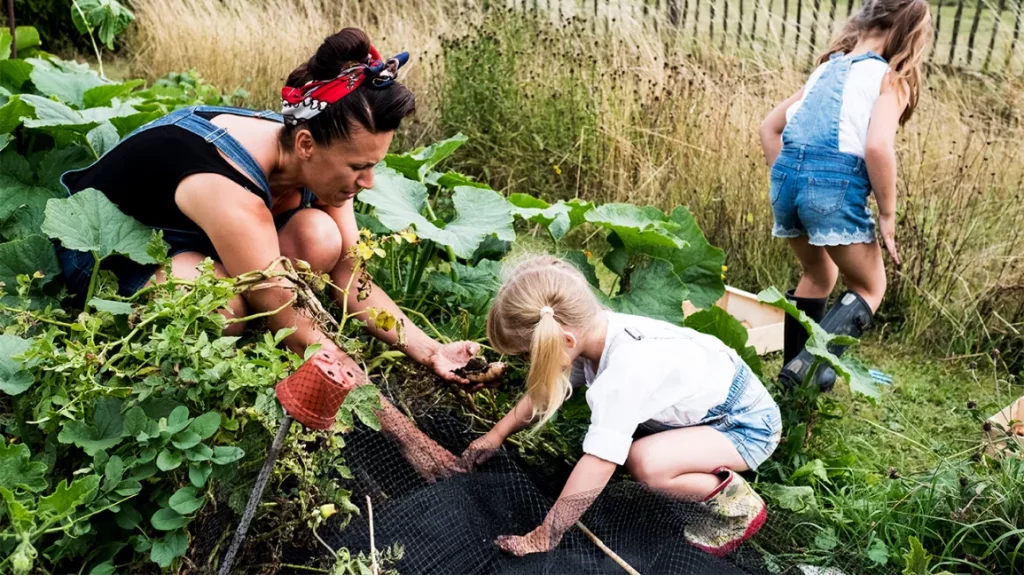A vegetable garden in the backyard can be a perfect way of ensuring your family gets fresh vegetables from a reliable source. However, growing healthy vegetables requires some work and effort. Whether you want to garden to grow vegetables for selling, feeding your house, or for fun, you want it to look great and make your backyard look beautiful. The following are ten useful tips for maintaining a healthy vegetable garden at home.
Mulch
Mulching helps preserve moisture and add nutrients to the soil. So, encourage mulching in the garden. You can use various materials like grass, sawdust, or wood chips. Mulching also inhibits weed growth and helps prevent diseases.
Plan Before Planting
If you want your garden to look attractive, don’t plant haphazardly. Instead, have a plan of how you will plant your vegetables. Make a list of the vegetables and fruits you want in the garden and find the ones that are easy to grow in such an area. Knowing about the plants will help you know how to plant them to make your garden appealing and healthy.
Add Color
A perfect way of making your garden attractive is by playing with colors. Even a plant-based diet with different colors is exciting to eat. Therefore, it will be a good idea to go for plants with leaves and fruits of different colors. For example, you can go for yellow, red, and green pepper, red tomatoes, white squashes, etc.
Deal With Common Issues
Some insects, like ladybirds, are helpful to plants. However, others can harm them and spread diseases. So, consider pest control to remove the pests from the garden and away from the house. You can always find skilled pest control services to assist you in handling pest issues. Having skilled services would be wonderful since you will have an opportunity to get information on various products and solutions. Furthermore, it is easier to know that your issues will be sorted for you at your own convenience. Knowing how to deal with common issues affecting the garden is crucial.
Go for Disease-resistant Plants
There are common diseases that attack plants. Disease like fungus is common in squash plants. Because some of these diseases are very common, the retailers will indicate the plants resistant to diseases when buying the seeds. It is advisable to look for this signage to avoid planting disease-vulnerable vegetables.
Use Healthy Soil
The soil you use will determine how healthy your plants will be. You must choose good soil with nutrients for plants to thrive and stay healthy from diseases. You can mulch or add compost to increase nutrients. Ensure you also test your soil for nutrients and pH. Depending on your results, a test kit will instruct you on how to improve soil quality.
Plant Them Closer
It is also advisable to plant the plants closer than what is recommended. When planted closer, they tend to yield more than when they are far apart. The science behind this is that when plants are close, it inhibits weed growth and retains moisture and nutrients. Your garden will also look full. However, avoid planting them too close to ensure every plant has enough room to grow. Additionally, avoid planting plants with fungus or disease issues close to each other.
Remove Weeds
Weeds grow faster than plants and bring undesirable effects. They take up much of the nutrients and moisture and might even block sunlight from reaching your plants. Therefore, keep your plants healthy by removing weeds as soon as they grow. You can also find an effective weed control remedy to work with. Weeds are unattractive and can ruin the appeal of your garden. On top of that, they compete with the plants for nutrients and water, which can weaken your plants.
Add Flowers
Make the garden even more beautiful by adding flowers. You can use flowers to divide the soil patches or plant them around the garden. Mix different textures and colors and use the flowers to cover empty spaces. You will be proud of yourself every time you look at the garden. Flowers also attract pollinators to the garden. That means they can help increase your yields and keep the plants looking healthy, not to forget the color and visual appeal they add to the garden.
Prune the Plants
Pruning your plants and removing dead branches is crucial to keeping your garden healthy and looking good. Do this regularly to ensure your garden is in good shape. Pruning the plants can also help increase your harvest and get rid of affected parts that can spread diseases.
In summary
These are low-cost maintenance tips for a vegetable garden. Ensure you carry out each of them if you want a healthy and attractive garden in your backyard. Most importantly, learn to control pests and diseases since they can be a big nuisance.
